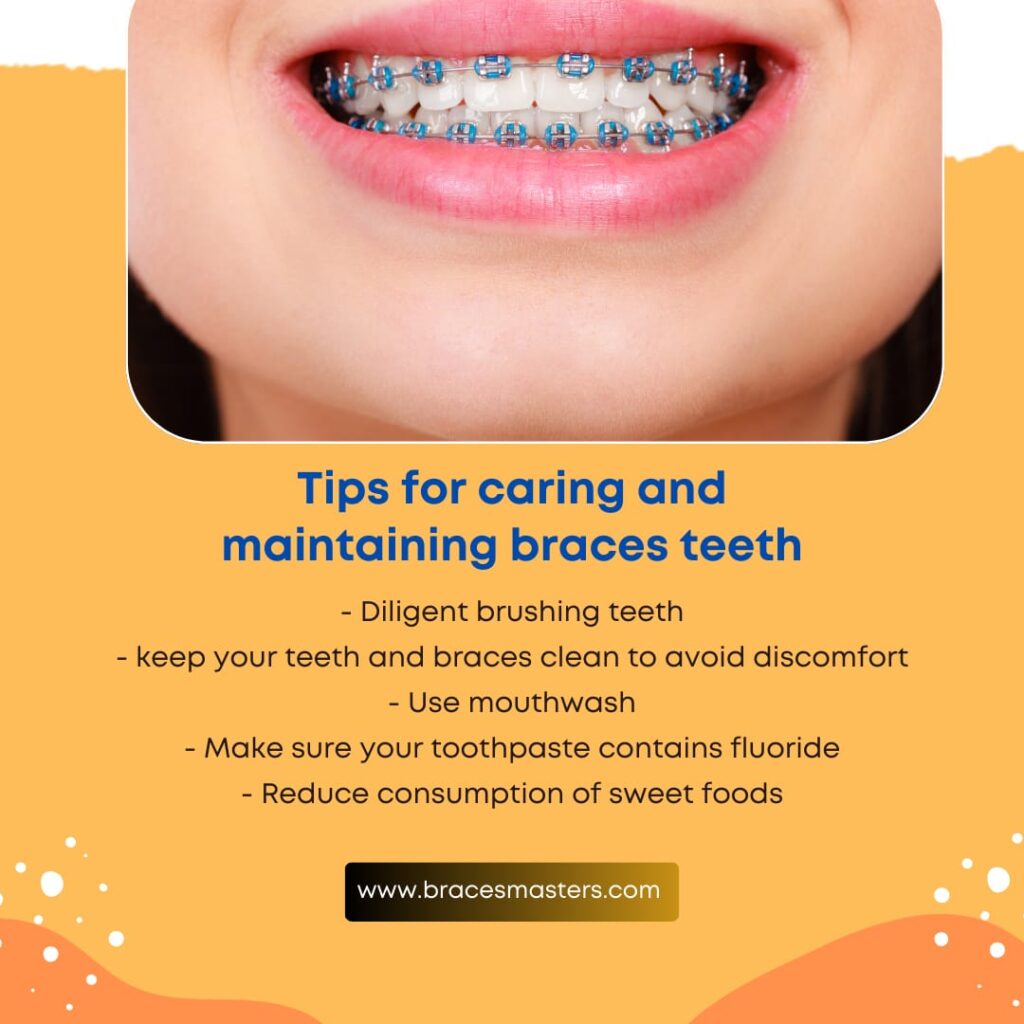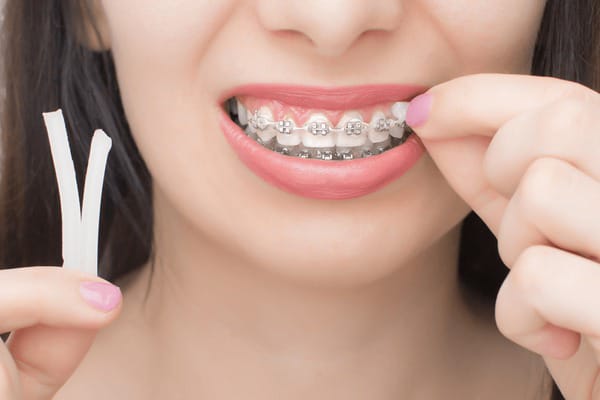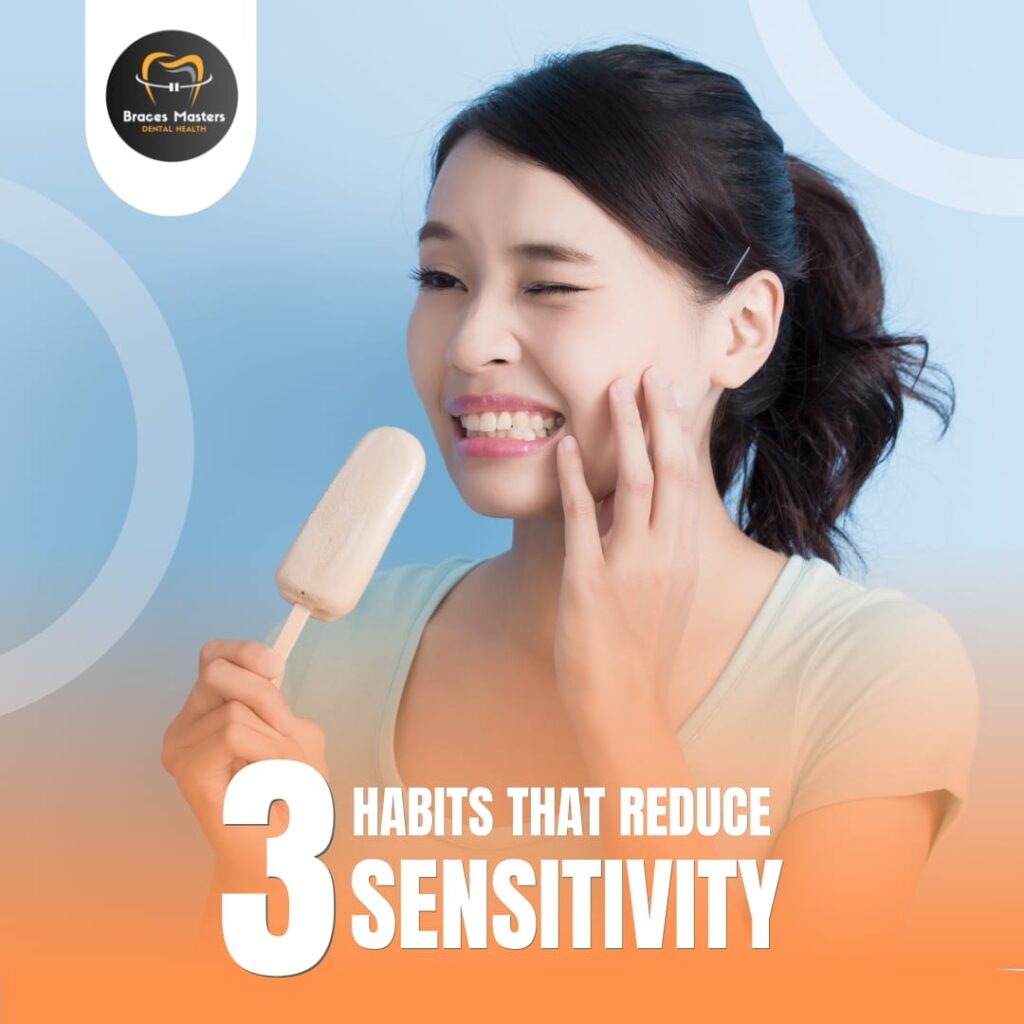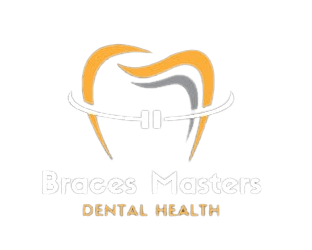Do braces hurt? We think this is a question asked by almost every single person who’s interested in getting started with orthodontic treatment. Today we’re going to talk about what to expect when you get braces if they hurt and how you can manage this discomfort, so let’s get started.
Do braces hurt?
We want to address the question of whether braces hurt and what you expect at those initial appointments, and we are going to start this off by saying that not everyone experiences the things that we are going to talk about; some people experience more dental discomfort, some experience cheek irritation and some people don’t experience any discomfort at all. But everyone has a different threshold for pain, and the experience that he or she will have might be different from yours.
So go in with an open mind and don’t fear your orthodontic appointments. You know you might get a little bit of discomfort, but it’s nothing that’s going to be like the end of the world. A lot of people go through this process, and they do great.
A comprehensive guide
- Do braces hurt? when they’re Getting on
- Cheek discomfort caused by braces
- Do braces hurt when managing dental aches?
- Do braces hurt your cheek and lip?
- Do braces hurt when they’re removed?
- Sensitive teeth
Do braces hurt? when they’re Getting on
Starting with the first appointment, when you get your braces on, there is nothing that hurts; there’s nothing that can cause any discomfort. The biggest thing is that you have those cheek retractors in, but those don’t hurt at all; they just stretch your cheeks so that the orthodontist can keep your mouth dry and put the braces on accurately, but during your appointment, there will be nothing that will hurt you at all.

When you first get your braces on, you know that a couple of hours after you get your braces on, you might experience a little bit of discomfort. Orthodontists always tell patients that this feels a lot like their teeth are bruised, and you know how bruises are; they don’t hurt, but they’re kind of annoying, and they’re uncomfortable.
Whenever you press on a bruise, it has a little bit of pain, just like when you bite on something when your teeth are initially moving. It’s going to be a little bit uncomfortable, but this pain doesn’t last forever, and it’s kind of like getting a ball in motion when you first start with orthodontic tooth movement. It’s probably the worst. That’s why spacers and the initial wires are the ones that cause a little bit more discomfort than later on in treatment because those periodontal ligaments that surround the teeth are initially starting to move, and that can cause a little bit of discomfort.
Cheek discomfort
What you can also expect in these early days with braces is that you might have a little bit of cheek discomfort, and that can be caused by the brackets kind of sticking out and your cheeks aren’t used to them. You have to realize that the tissue in your mouth is really thin, and you know early on when the cheeks don’t know what this metal is.
They can get caught, and it can snag and cause a little bit of irritation. Now that this doesn’t last throughout treatment, your cheeks thicken up, and they kind of develop little calluses that don’t last forever, but they develop these little calluses so that your cheeks are used to it and you don’t develop these sores as often.
So with this discomfort early on in braces, you’re going to basically have two types of discomfort: one is going to be caused by the tooth movement that is caused by the braces, and the other is going to be more of like a gum discomfort that’s caused by irritation to the cheeks and lips, and we handle these discomforts a little bit differently.
Do braces hurt when managing dental aches?
The main way you can handle dental discomfort is with a few tricks. You can do things like eat colder foods. Eat softer foods. keeping your teeth separated because what you want to do is decrease the inflammation in your mouth so that your teeth are comfortable.
Also, these early wires that orthodontists use are activated by the heat and the temperature in your mouth, so by eating foods that are a little bit cooler and softer, what’ll do is make these wires a little bit weaker temporarily. Once your mouth temperature goes back to normal, you know the forces will resume, but if you eat something cool or drink some cold water, what this can do is lower the temperature in your mouth and make it so the wires aren’t delivering as much force and cause a little bit more comfort. Also, you could take any type of anti-inflammatory medication that you take for any of your headaches.
So take whatever medication you’re used to taking for your regular headaches and the prescription on the box, and that should help a lot with the dental discomfort. Like we lightly mentioned, you want to stay away from hard foods because you know you don’t want to irritate bruised teeth. Basically, what they’re doing is recovering and adapting to these new wires.
So you want to be gentle on the teeth while they’re beginning this orthodontic process, and you know that moving forward with future appointments after you get your braces on, you still might develop a little bit of discomfort for a few days after you get your braces tightened, but like we always say, the initial wires are generally the most difficult to get used to because it is like getting that ball rolling, so we know it’s unfortunate that the uncomfortable part is on the front end of this journey, but you know that once you’re getting started, the worst part is generally overlapped.
Do braces hurt your cheek and lip?
The second type of discomfort that you can have with braces early on in the process is, like we said, the irritation on your lips and gums. This can be fixed by using things like wax and anesthetics on the cheek side.

Your orthodontist should teach you how to use wax. You want to make sure that you roll a little ball of wax and apply it to areas where these braces are irritating your lips, but you also have to make sure that the teeth or the areas that you’re putting this wax on are dry, or else the wax isn’t going to stick and it might fall off. Your cheeks will develop calluses and get used to the braces, but like we said earlier, during the process, your gums and your cheeks are a little bit easily irritated because they’re not used to this foreign substance.
So just until your body gets used to it, if you develop some sores on your lip, what we recommend is to do a few things. You can use warm salt water rinses, and you can do this throughout the day, which will decrease the irritation to your lips and cheeks. But if the sores are causing you too much discomfort, we usually recommend using some sort of topical anesthetic. If you put that on the area, it’ll numb it up and create a kind of barrier so that your lips and cheeks feel a lot more comfortable.
Do braces hurt when they’re removed?
And the last thing we want to talk about is whether braces hurt to have them removed, and the answer is generally no. The way orthodontists take the braces off is that they pop them off of each individual tooth, and this is a lot like if anyone has had a broken bracket; it’s just a little weird popping sound, and that’s the composite or the filling material that holds the bracket to your tooth breaking loose, and that shouldn’t really cause any discomfort after we pop those brackets off of your teeth.
Your orthodontist will go through using a drill and polish off that glue so that there’s no glue remaining on your teeth, and you might be thinking, Oh my god, there’s a drill. Does it hurt? It doesn’t hurt; what you’ll be feeling is mostly just cold air, and your mouth will become dry because you’re going to be removing all that glue from your teeth. But the way these drills work is by blowing air and causing the drill to spin, so you’re going to feel a lot of cold air in your mouth.
So that might cause a little bit of discomfort, but your orthodontist understands that, so just let them know if you have sensitive teeth, and that way they can go a little bit slower to remove the glue from your teeth.
Sensitive teeth
We also recommend that if you are going to have your braces removed and you have sensitive teeth, you can use Sensodyne toothpaste. What this will do is decrease the sensitivity of your teeth so that when they remove your braces, you have the most comfortable and painless experience possible.

- Fluoride Rinse: Be sure to include a fluoride mouthwash in your daily routine to keep the enamel surface of your teeth strong and protected from sensitivity.
- Avoid Acidic Foods: To avoid sensitivities, avoid acidic foods such as citrus fruits, sodas, vinegar-based foods, and anything too sweet.
- Gentle Brushing: Brush your teeth gently with a soft-bristled toothbrush to avoid sensitivity and irritation, and avoid hard brushing.
Conclusion
So in closing, do braces hurt, and the answer is not really will you have some discomfort? Well, most people do, but they get over it in a matter of a couple of days, and every day will be better than the last day. We know it’s a difficult process, and you know it takes a lot of getting used to.
I hope some of the tips and tricks that I mentioned will be useful for you, making your process and your journey a little bit more comfortable. If you have any more questions about orthodontics, go ahead and leave them in the comments. As always, we hope you guys stay healthy, happy, and safe out there, and be sure to keep smiling.
If you want to know more about orthodontic treatment, how braces work, what the different types are, and what braces tips are, be sure to visit the blog section of our website. You will find a lot of useful knowledge there.
Don’t forget to follow us on Facebook, Instagram, TikTok, and Twitter.
